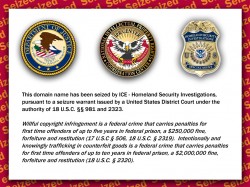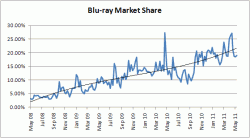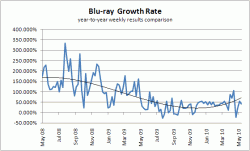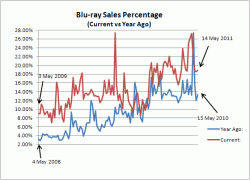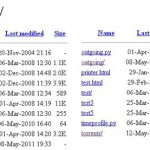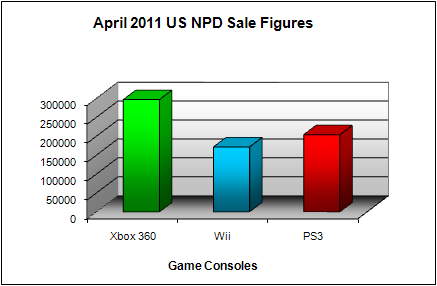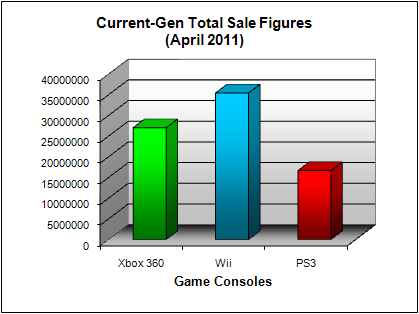I’ve had a busy week, with not one, but two days worth of work being done! On the first work day, I managed to write up that Blu-ray sales analysis I’ve been promising since the start of May, which looks at Blu-ray sales stats in the past 12 month (since the last analysis of the same kind). You can read it here.
Feeling pretty happy I’ve done enough work for the day, I suddenly realised that I haven’t written an article, guide or tutorial in ages. Well yes, I did write the PowerDVD review recently, but that doesn’t really count. So I decide to take a whole day and write a tutorial for a software that I’ve been growing fond of recently, VidCoder. Based on the Handbrake encoding engine, VidCoder tries to make converting to MKV and MP4 simpler, which suits someone like me who gets easily frustrated. And best of all, it supports Blu-ray conversions too, something that I must admit that I haven’t really tried until now. And so if you want to find out how to convert video files, DVDs and Blu-ray discs to MKV or MP4, then read my new tutorial here. The MP4s produced, if you follow my guide, will work on the Xbox 360 and PS3 (and the MKV should too, after you use my mkv2vob guide).
And of course, there’s the news. I’ll try to keep this WNR short, because I’ve already written something like 10,000 words this week, and my keyboard needs a rest. So let’s get started.
 In Copyright news, a new study in the UK, commissioned by the Prime Minster no less, gives us hard evidence of what we’ve suspected all along – that political lobbying is influencing copyright legislation too much.
In Copyright news, a new study in the UK, commissioned by the Prime Minster no less, gives us hard evidence of what we’ve suspected all along – that political lobbying is influencing copyright legislation too much.
The study looked at how copyright legislation came to be in the UK, and found that politicians are under increasing pressure from copyright lobbyists, and that the pressure is working, with ministers more likely to listen to lobbyists, than their own impact studies. Everyone knows that political lobbying is much more of a serious problem in the US, and so if British MPs are under this kind of pressure, you can imagine what US politicians are experiencing. Of course, this is the kind of pressure that most people don’t mind, you know, the kind where you end up with a new holiday house at the end of it. But it just shows that there is this force working against consumers and sensible copyright legislation, and what we need now is an opposite force to counter the excessive copyright lobbying. Come on Google, Microsoft, Facebook and all the Internet and tech companies that are really the ultimate targets of the copyright lobby, put your money where your mouth is and create the biggest, most well funded, lobbying organisation on the planet to safe our rights (and your bottom line). Of course, in a perfect world, we wouldn’t need financial based lobbying, but what can you do.
US Immigration and Customs, ICE, are back seizing domain names again, this time from websites that don’t even host pirated content. Apparently, simply linking to a YouTube video uploaded by someone else that may or may not contain infringing content is enough to get your domain seized. That’s exactly what happened to Re1ease.net, a website that linked to, alright infringing content, but uploaded and hosted by sites like Megavideo and Veoh. To be honest, if the admins of the website went to court, given the current copyright climate, they would still probably lose. But since ICE has decided that having a fair trial is no longer necessary these days when it comes to seizing domain names, I would think the standards should be higher than third party linking. Because, what would happen, let’s say, if there was a fan website for the TV show Community, and they had a web forum where users were posting embeds and links to YouTube/Megavideo/Veoh videos of full episodes. Should ICE then seize the domain name of the entire website, just to get the forum offline? Once upon a time, the DMCA, the very legislation that the entertainment industry lobbied for, would have been used to warn the forum admins, and probably put an end to the practice once and for all. But the same entertainment industry is now saying the controversial DMCA isn’t controversial enough any more. For the record, the admins of Re1ease.net says they’ve always complied with DMCA requests, and Megavideo in the past have said they do so too. Any again, pointing to the waste of tax payer money, the Re1ease.net website, minus the domain name, is now back up and running again less than 48 hours after the seizure. ICE Director John Morton says that it’s the educational values of these seizures that tax payers are paying for, not actual quantifiable actual results in reduction of piracy or anything silly like that.
The controversial PROTECT IP bill has been unanimously passed through the Senate Judiciary committee. It’s not a surprise, given the amount of lobbying cash being thrown around, but it’s still not acceptable. For those that don’t know, the bill aims to formalize what ICE has been doing recently, and then give the DoJ the power to file civil lawsuits against copyright infringers, to seize more domain names and screw up the Internet’s DNS system in the process, to force web hosts to remove websites, force the likes of Google to filter out search results, and finally force financial providers to cut off support to offending websites. The MPAA/RIAA will also get a subset of these rights. But luckily, there are still politicians that put the country and its citizen’s interest ahead of their own financial interests and that of multi-billion dollar corporations. The Democratic Senator from Oregon, Ron Wyden, has put a hold on proceedings, which means that unless the Senate leader can marshal up the 60 votes required to defeat the hold, PROTECT IP will not be voted on in the senate. Wyden also put a hold on last year’s similar COICA bill. Wyden says that he did it because he doesn’t want to “muzzle free speech” using this “overeaching approach” to stop the legitimate problem of online copyright infringement. It’s sad that a US senator has to use a hold to protect free speech in what is supposed to be a democratic and free society.

The RIAA and MPAA are lobbying for an end of the 4th Amendment, so police can search and seize suspected piracy operations without a warrant
But even with PROTECT IP, the DoJ and ICE will most likely still has to have some court involvement to allow them to seize domain names (but because the judge only ever gets to hear the ICE/MPAA/RIAA’s side of the story, it’s not exactly a fair judicial proceeding, is it?). So wouldn’t it be nice if ICE and other government agencies can simply just seize whatever they want without having to cross all the i’s and dot all the t’s? It would be nice, except for that pesky 4th Amendment in the US Constitution, you know, the useless one about unreasonable searches and seizures. So why not just ignore it, like what is current being proposed in California and fully supported by the RIAA and MPAA. Californian State Senator Alex Padilla wants the 4th Amendment waived in cases of disc piracy, so that law enforcement can enter, search and seize any place where CD/DVD/Blu-ray duplicators are present, all without having to obtain a warrant or having any hint of probable cause. The RIAA and MPAA, who are probably behind this idea in the first place, came out totally supporting it, once again doling out that old chestnut about saving jobs and benefits, despite the fact that the only people that have ever cut jobs and benefits for the hard workers of the entertainment industry are the same people running the RIAA and MPAA. So it’s clear now, the MPAA and RIAA will let nothing, and I mean nothing, get in their way when it comes to protecting their dying business model. If the MPAA and RIAA thought that bringing back slavery could help protect their business model, than that’s what they’ll be lobbying for, you can bet on it. And as for how law enforcement would even know if a premise had disc duplication equipment, I don’t even want to get into this, because this is exactly why things like probable cause and warrants are necessary, to ensure an investigation has already been made, that the police are not searching random places. And does having one of those desktop disc duplicators at home mean the police can enter, search and seize, any time they want?
It’s been a while since I mentioned the US Copyright Group, but they’re back in style this week, adding some 20,000 new IP addresses to the Hurt Locker lawsuit. That makes nearly 25,000 IP addresses that the USCG is “suing” for allegedly downloading The Hurt Locker, and I say allegedly because nothing has been proven in court, and if the USCG get their way, nothing will ever get proven. This is because the goal is not to catch pirates, but to make people who are afraid of court proceedings to pay up the thousands of dollars in “pre-trial settlement” fees. The people who say they’re innocent, and want a trial, can’t get one. It’s funny, because The Hurt Locker only made $17 million at the box office (don’t know about DVD and Blu-ray sales, but it was pretty popular at one point), but if the USCG gets their way and all 25,000 pay the $2,000 or more settlement fee, that’s $50 million, almost three times as much as the box office – is that really fair? But with ICE, PROTECT IP – the USCG is fast becoming the “good guys” in copyright enforcement, because at the very least, they’re not out there actively trying to destroying one of the basic tenets of liberty.

In HD and 3D news, well, there’s obviously my Blu-ray sales analysis. The conclusion wasn’t really a surprise, that Blu-ray grew, while DVD shrank, but overall disc sale dropped as Blu-ray’s growth wasn’t enough to offset DVD’s decline.
Although to be fair, the overall decline has much much more to do with the box office of the new releases, and Q1 2011 hasn’t been as good as Q1 2010. I’ve also noticed far fewer “big name” catalogue releases recently, but to be fair, most of the good ones have already been released. The Lord of the Rings Extended Editions and the Star Wars movies should help in this front, and particularly for the Star Wars movies, expect a huge bump in market share when this “Blu-ray exclusive” is released.
As for 3D, one analyst is convinced the 3D craze is near an end and that studios should stop investing in 3D productions. BTIG Research analyst Richard Greenfield made the call, based on recent figures which show a decline in 3D revenue. Greenfield cites recent ticket sale figures for Pirates of the Caribbean: On Stranger Tides, of which only 38% of ticket sales belonged to the 3D screening, down from the typical 50%+ expected of these types of movies. Greenfield says that the decline is mainly down to cost, and eye strain. On the cost front, with 3D tickets sometimes as much 40% dearer than the 2D counterpart, the extra cost may be driving people away from the cinema screening, or are making people spend less on overpriced popcorns and other treats, all of which is hurting the bottom line. And with more than 40 3D movies this US summer, perhaps there’s the case of “too much of a good thing” here, considering it was never really that good, not for your eyes, anyway.
![]()
And finally in gaming, with the PlayStation Store still down the last time I checked (me wantey free games!), and with no ETA other than the vague “before the end of the month” quote from Sony some time ago, Sony’s Howard Stringer gave us a sneak peak of the mindset over at Sony HQ, and about the company didn’t expect to be hacked because PSN was a free service.
What?
His exact words were: “We have a network that gave people services free. It didn’t seem like the likeliest place for an attack.”
Yes, because nobody would ever want to hack Sony, not even when Sony declared war on hackers, first by removing the OtherOS feature that many paid for, and then by going after everyone involved in the PS3 hack, and then by suing several hackers. Sony didn’t really expect any blowback at all, and I totally believe them, because that’s how arrogant and out of touch they have become.
Alright, the red light on my keyboard if flashing, which means that I’ve nearly used up my weekly “key click” allowance. Better stop writing before I’m locked out, and unable to finish off this edition of the WNR. So until next week, have a good o

